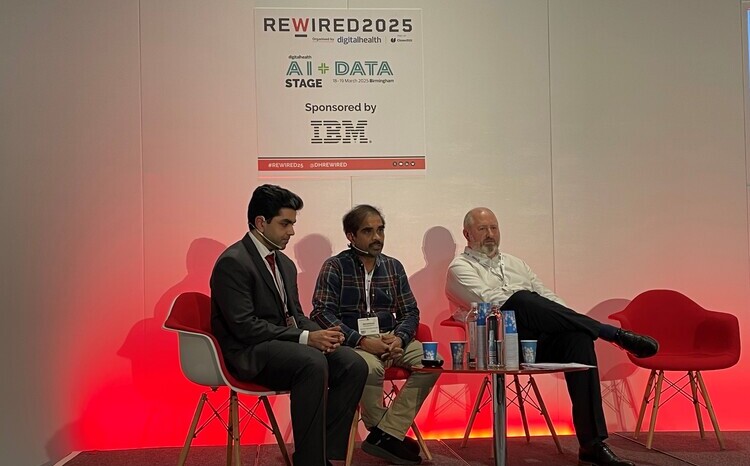NHS warned on rollout of AI-powered genomic health prediction
- 11 September 2024

- A report from the Ada Lovelace Institute and the Nuffield Council on Bioethics has warned against the mass rollout of AI-powered genomic health prediction (AIGHP) in the NHS
- It says that AIGHP could pose risks around privacy, discrimination and societal problems
- The report recommends policymakers focus on enabling targeted deployments of genomic health prediction within a stronger regulatory framework
The mass rollout of AI-powered genomic health prediction (AIGHP) could pose significant risks concerning privacy and discrimination, a report by the Ada Lovelace Institute and the Nuffield Council on Bioethics (NCOB) has warned.
AIGHP refers to a set of AI-driven techniques that use genomic data and other kinds of data to enable predictions about people’s future health and drug responses.
The report, ‘Predicting: The future of healthcare?’, published on 11 September 2024, assesses the potential benefits and risks of AIGHP in the UK health system.
It raises risks and concerns relating to scientific uncertainty about the effectiveness of the technology, privacy risks around the use of sensitive personal data on a mass scale, new forms of genetic discrimination (particularly in the context of health insurance), structural challenges surrounding NHS adoption of new technologies and a lack of evidence on public attitudes towards AIGHP.
The Ada Lovelace Institute and NCOB caution against a population-level roll-out of AIGHP within the NHS, and instead support a targeted approach for its use in cases where there is a well-defined need.
They make recommendations for policymakers, including the creation of better data protection guidance and a new model of consent for patients sharing their genomic data.
Harry Farmer, senior researcher at the Ada Lovelace Institute, said that genomic health prediction has potential for “greater efficiency, precision and personalisation”, but added that its use within the NHS should be “approached with caution”.
“Our research suggests that current regulations urgently need to be strengthened to address substantial concerns around privacy and discrimination presented by the technology – and to build public trust.
“We also find that a mass rollout of genomic health prediction could present significant structural risks that would be difficult to address through regulation, and which could potentially outweigh the technology’s benefits.
“Rather than seeing it as a tool for mass disease prevention, policymakers should focus on enabling targeted deployments of genomic health prediction, within a stronger regulatory framework,” Farmer said.
The UK government has published strategies, including the ‘Genome UK: Future of healthcare‘ published in 2020, that cite the potential of AIGHP to transform the NHS by offering more preventative and personalised healthcare.
Professor Sarah Cunningham-Burley, chair of the NCOB, said: “AI-powered genomic health prediction has the potential to offer us a lot, but this report clearly highlights that we are not ready to fully embrace it, and nor is it ready to deliver on its promises.
“We must also take a step back and engage the public fully so that we can ensure the use of AIGHP in our NHS is not only wanted, but also trusted.
“Only by embedding ethical considerations from the outset, will AIGHP reach its full potential.”
The report, builds upon insights gathered in the early findings DNA.I report, published in August 2023, which highlighted ethical, legal and social questions surrounding the convergence of AI and genomics.
Digital Health News approached NHS England and the Department of Health and Social Care for comment, but had not received a response at the time of publication.




